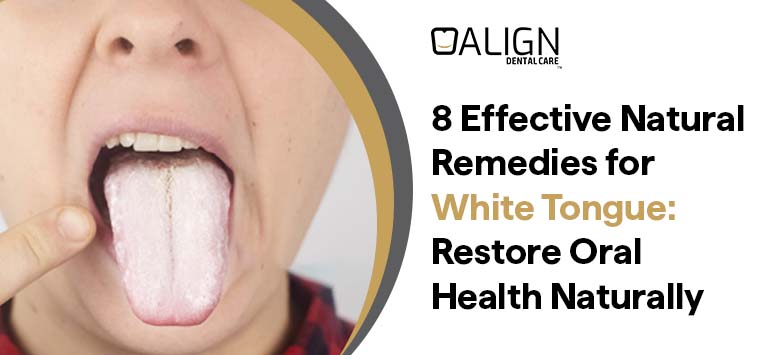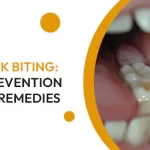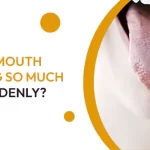Have you ever noticed a white coating on your tongue and wondered what it could be? This condition is called “white tongue,” and it’s a common occurrence among people of all ages.
The tongue is the gateway to the body, and any minute changes in its appearance or function could be symptoms of other medical conditions. Therefore, it’s essential to pay attention to your tongue and maintain proper oral hygiene to avoid white tongue problems.
In this guide, you will see the most frequent causes and natural remedies for white tongues that often appear to be only temporary: let’s find out what lies behind this problem and how to deal with it with simple and economical natural remedies.
What exactly is a white tongue?
A white tongue is a common condition that occurs when a white coating or film appears on the tongue’s surface. The white coating on the tongue is usually made up of dead cells, food particles, and bacteria, and can occur on the entire surface of the tongue or in specific areas. This condition can be quite uncomfortable, making eating and drinking difficult and causing bad breath.
What Causes White Tongue?
A white tongue is the result of bacteria and germs collecting and forming a thin layer on the back of the tongue. This can impact both adults and children and frequently occurs when we wake up in the morning. In other situations, the causes of the white tongue can be linked to various factors: intake of alcoholic beverages, smoking, poor oral hygiene, irritated language, and low fiber diet.
The white coating on the tongue can also be a symptom of more severe phenomena such as inflammation of the taste buds, consumption of antibiotics, candidiasis, and thrush in newborns. Stress, flu, gastroesophageal reflux, or the change of season can also contribute to white tongue and bad breath.
Be careful if you notice small blisters on your tongue, which could be scarlet fever. If there are also white streaks, another hypothesis is that it is lichen planus, a form of dermatitis of the oral mucosa.
In any case, it is always necessary to rely on the opinion of an expert doctor and carry out a thorough examination.
8 White tongue natural remedies
Once the cause has been identified, resorting to the most specific natural remedy will also be simple.
1- Lactic ferments and tongue cleaner :
One approach to combat white tongue involves incorporating lactic acid bacteria supplements and employing a tongue scraper designed to physically dislodge the coating, averting the potential spread of accumulated toxins throughout the oral cavity.
2- Aloe vera
Aloe is a plant often used to keep inflammation at bay. Aloe Vera juice is a natural therapy that works well for healing tongue white spots. These patches could be a sign of an underlying medical issue such as oral thrush or leukoplakia.
3- Sodium bicarbonate
Sodium bicarbonate, also known as baking soda, helps to balance the pH levels in your mouth, which can help to combat the growth of harmful bacteria that may be causing the white tongue. It also has natural whitening properties that can help to reduce discoloration.
4- Garlic
Utilizing its powerful antifungal attributes, garlic eliminates various fungi within our system, including Candida albicans, responsible for white tongue. While consuming a slice may create a brief social hiatus with your partner, it also grants you the advantage of potent antifungal properties.
5- Salt
Salt, despite being commonly underestimated, holds great potential. A routine of rinsing twice daily with warm, salt-infused water proves effective. An alternative method is to apply salt directly to the tongue and gently brush it with a toothbrush, effectively erasing any buildup, akin to a natural scraping action.
6- Turmeric
This powdered spice can be used to create a scrub. Add it to a few drops of lemon and mix until you obtain a sort of paste, which you will leave on your tongue for a few minutes before rinsing it. Turmeric and lemon are natural antibacterials that keep toxins and dangerous microorganisms of the oral mucosa at bay.
7- Oil pulling
An ancient Ayurvedic technique involves utilizing a spoonful of either coconut or sesame oil and meticulously rubbing it onto teeth and tongue for at least 15 minutes before your morning brushing routine, aiming to eliminate oral bacteria.
8- Probiotic-rich foods
You are embracing probiotic-laden foods in your nutrition regimen to reinstate the equilibrium of beneficial bacteria in both your mouth and digestive tract. Yogurt, kefir, kimchi, sauerkraut, and a variety of fermented edibles house these supportive microorganisms, potentially combating the underlying triggers of white tongue.
When to Consult a Doctor
If your white tongue persists even after trying some quick treatment options, then it’s time to consult a doctor. Also, if your white tongue is accompanied by other symptoms such as a sore throat, fever, or difficulty swallowing, seek medical assistance immediately.
Remember, prevention is better than cure, so it’s important to maintain oral hygiene and a healthy lifestyle to avoid such conditions. Don’t ignore your tongue health, as it can be an indication of an underlying medical condition
In Summary
White tongue, often a severe condition, can stem from poor oral hygiene or even more serious issues like infections. These natural remedies, from tongue cleaners to probiotic-rich foods, address underlying causes like bacterial imbalance or irritation.
While these solutions can provide relief, they do not substitute professional advice. Persistent white tongue or accompanying symptoms necessitate a doctor’s evaluation for accurate diagnosis and treatment. Awareness of the potential causes and these natural remedies empowers individuals to tackle this concern effectively.
Remember, maintaining oral hygiene and seeking medical guidance are the cornerstones for managing the white tongue and ensuring oral health.
















